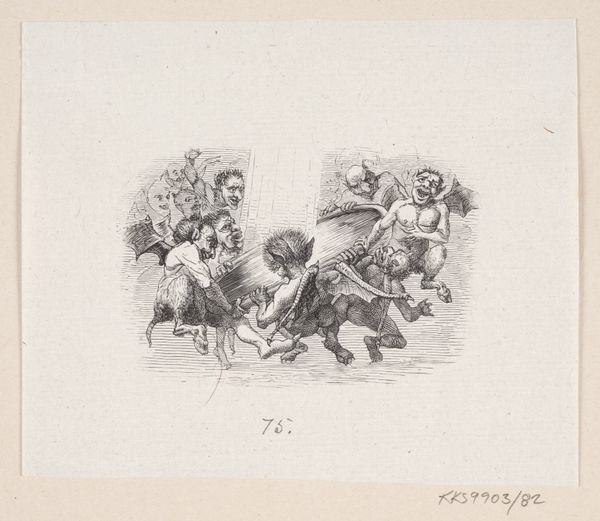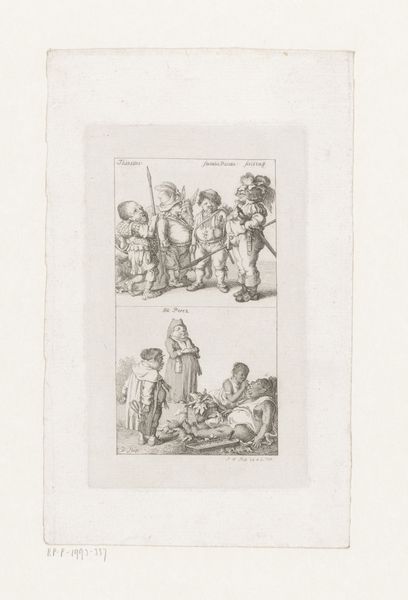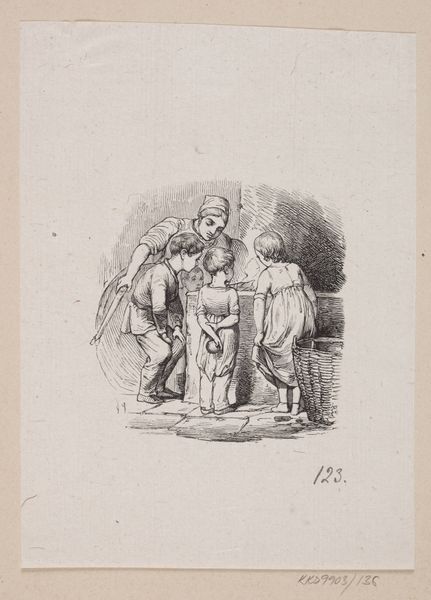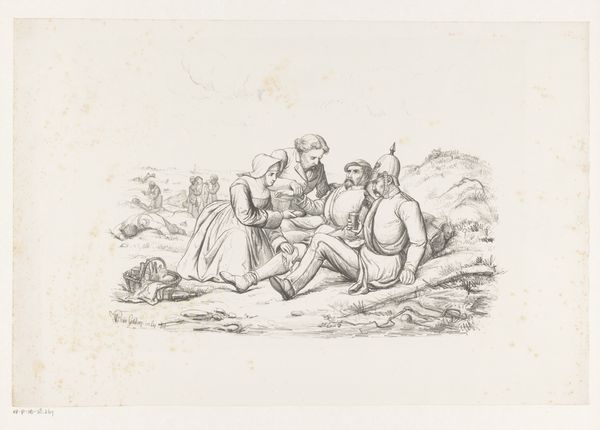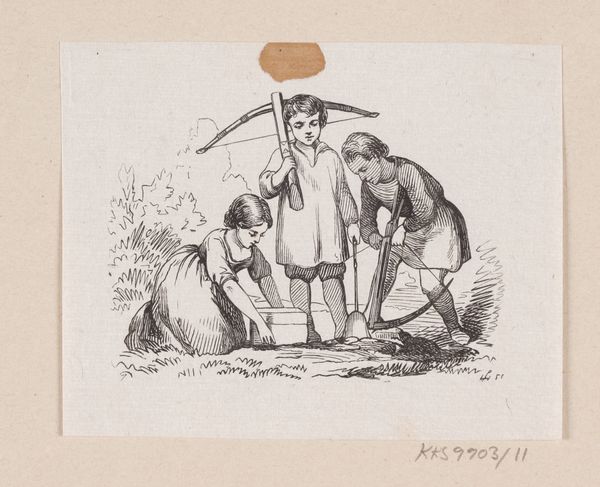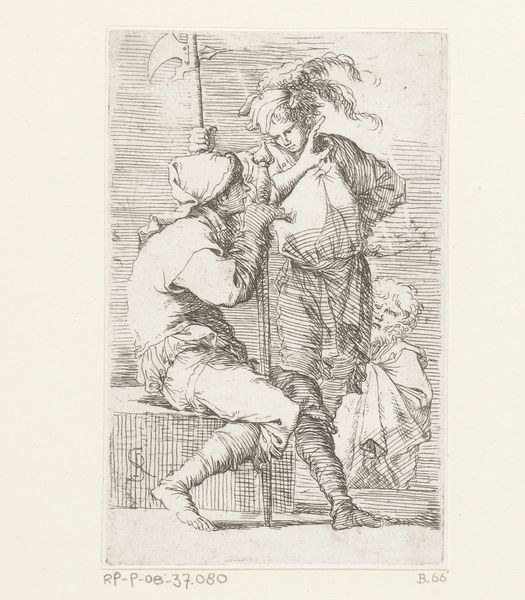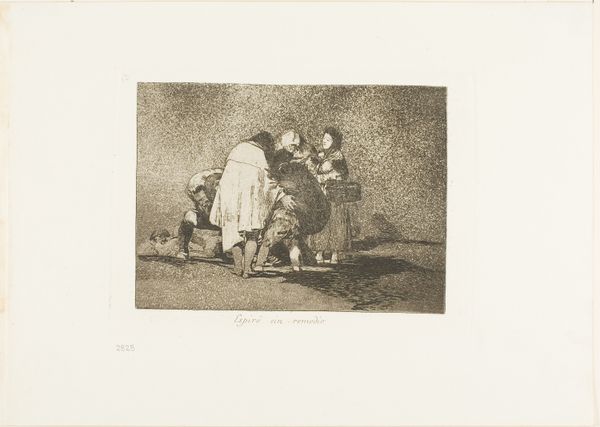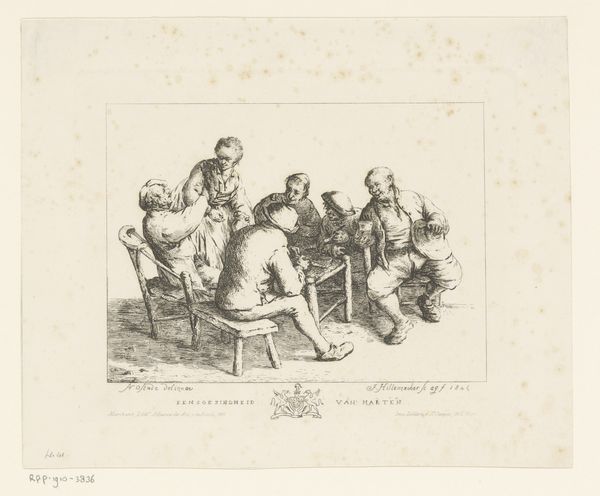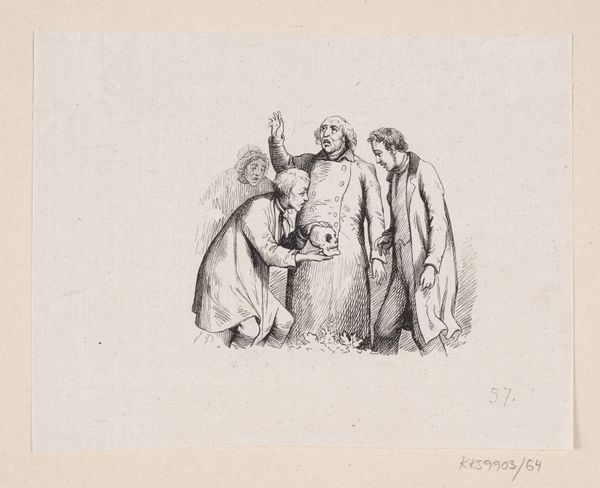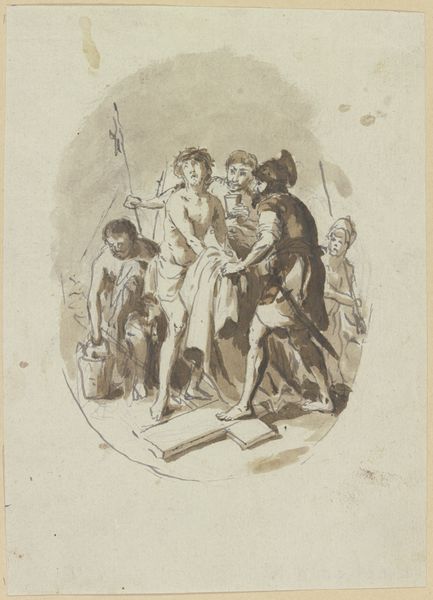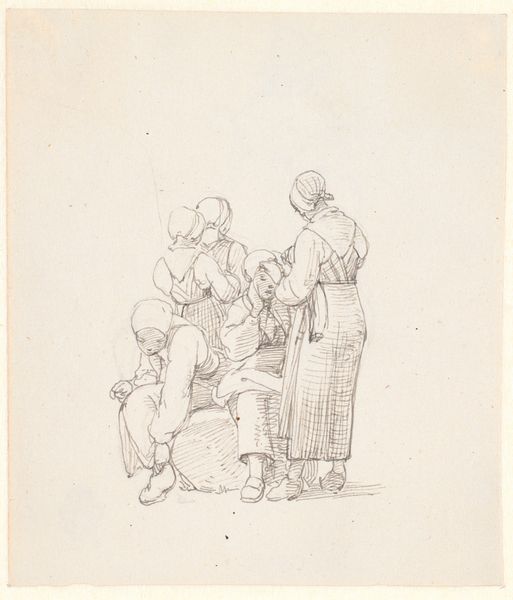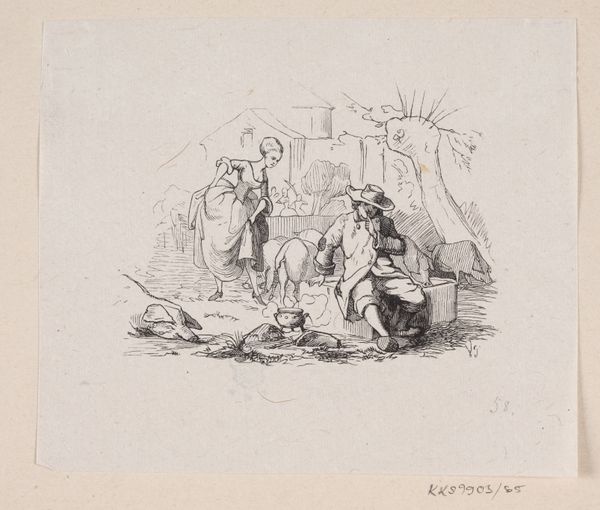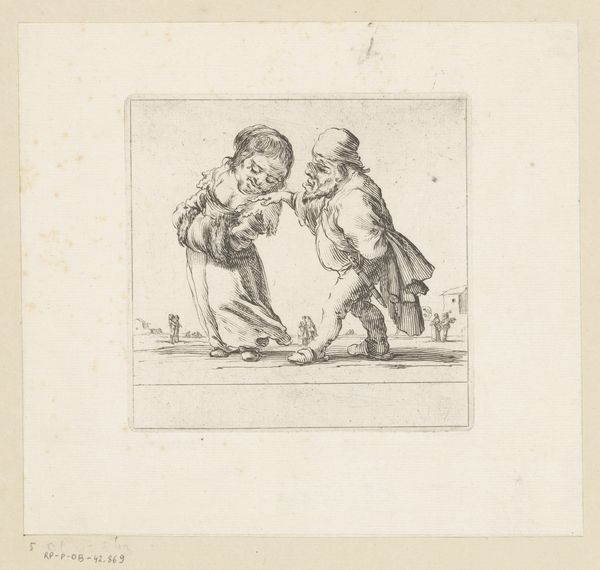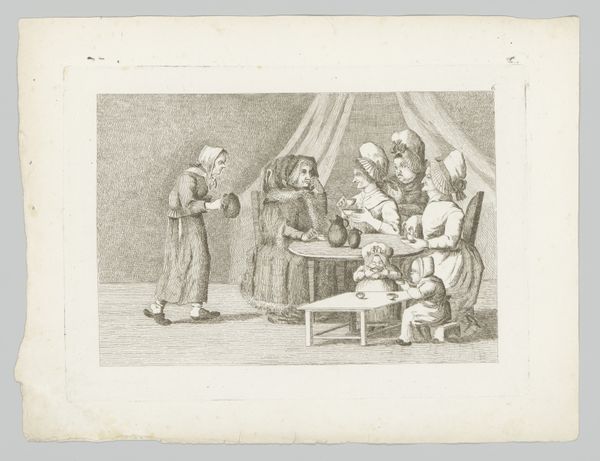
Illustration til "Stoppenaalen" i H.C. Andersen, "Eventyr og Historier", Bind 2 1870 - 1873
0:00
0:00
drawing, print, pen
#
pencil drawn
#
drawing
#
narrative-art
# print
#
pencil sketch
#
pencil drawing
#
group-portraits
#
pen
#
genre-painting
#
realism
Dimensions: 117 mm (height) x 138 mm (width) (bladmaal)
Editor: So, this is H.P. Hansen's illustration for Hans Christian Andersen's "The Darning-Needle," created between 1870 and 1873. It's a pen and pencil drawing, quite detailed for its small scale. The image is dominated by four boys intensely observing something on the ground. What strikes me is the focus on this seemingly mundane scene. How do you interpret this work? Curator: Well, seeing this piece through a historical lens, it becomes an interesting snapshot of social dynamics and the function of illustration in that period. The Andersen story, and therefore this image, aims at a broader audience that relies on the written and the visual message, usually promoting moral messages. How does this composition direct our gaze? What power dynamics are subtly embedded in the image, do you think? Editor: I see what you mean about power dynamics. It seems like the kneeling boys are maybe working at something, perhaps fixing their toys or something along those lines, and their relationship and position, and gazes almost suggest the need for supervision, mentorship perhaps... Is that something that Andersen, or the artwork wants to evoke? Curator: Precisely. And who commissions this work? What kind of cultural values might they want to reflect and promote? This artwork would have lived amongst the popular imagery and the narratives and lessons they offer on societal functions and class behaviours. The illustration served a clear purpose beyond mere decoration, participating actively in the shaping of young minds. Editor: So it is less about capturing the moment of child's play and more about reflecting specific social values through it? It's interesting how illustration at the time, it's such a reflection of societal intent. I hadn't considered that so deeply before. Curator: Exactly! Looking at art through its socio-historical context unveils a wealth of information about the values, ideologies, and power structures of its time. I think that applies very well to this piece. Editor: Definitely changes my view on what seemed like a simple illustration initially. Thank you.
Comments
No comments
Be the first to comment and join the conversation on the ultimate creative platform.
